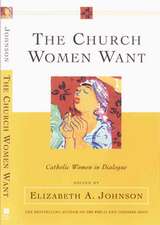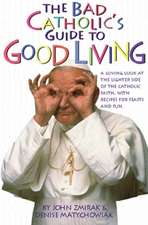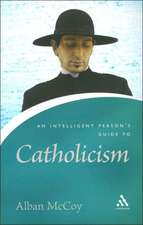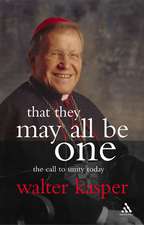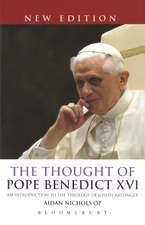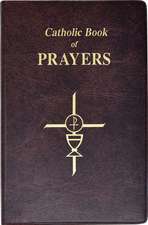Bernard of Clairvaux: On Loving God: Cistercian Fathers Series, cartea 13
Autor Bernard of Clairvaux Traducere de Robert Waltonen Limba Engleză Paperback – 28 feb 1995
| Toate formatele și edițiile | Preț | Express |
|---|---|---|
| Paperback (2) | 138.83 lei 3-5 săpt. | |
| Cistercian Publications Inc – 28 feb 1995 | 138.83 lei 3-5 săpt. | |
| Cistercian Publications Inc – 1976 | 235.48 lei 3-5 săpt. |
Preț: 138.83 lei
Nou
Puncte Express: 208
Preț estimativ în valută:
26.57€ • 27.63$ • 22.23£
26.57€ • 27.63$ • 22.23£
Carte disponibilă
Livrare economică 22 februarie-08 martie
Preluare comenzi: 021 569.72.76
Specificații
ISBN-13: 9780879071141
ISBN-10: 0879071141
Pagini: 219
Dimensiuni: 141 x 215 x 13 mm
Greutate: 0.28 kg
Ediția:Revised
Editura: Cistercian Publications Inc
Seria Cistercian Fathers Series
ISBN-10: 0879071141
Pagini: 219
Dimensiuni: 141 x 215 x 13 mm
Greutate: 0.28 kg
Ediția:Revised
Editura: Cistercian Publications Inc
Seria Cistercian Fathers Series
Textul de pe ultima copertă
Saint Bernard's On Loving God is one of his most delightful, and most widely read, works. It stands in the tradition of the Fathers of the Church, but it carries patristic teaching into the Middle Ages and into the cloister. Its famous affirmation that God is to be loved without limit, sine modo, is taken directly from the letters of Saint Augustine. While the tract is not an example of scholastic theology, it shows a typically twelfth-century love of logic and an unexpectedly precise use of terminology. In his analystic commentary, Emero Stiegman not only introduces readers to the abbot of Clairvaux's thought, but carefully analyses his language, his logic and his theology. In doing so, he demonstrates the vital importance of reading medieval authors on their own terms, without superimposing on them categories favored by later generations, even our own.


















